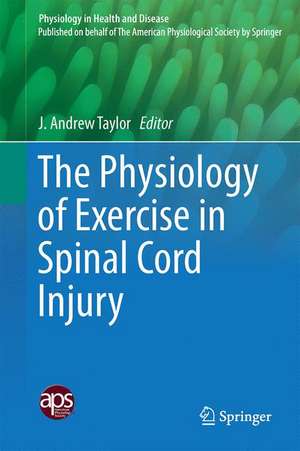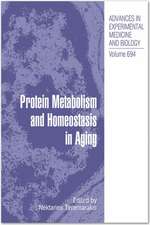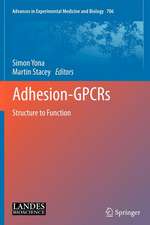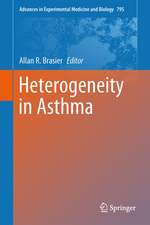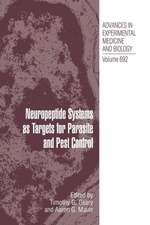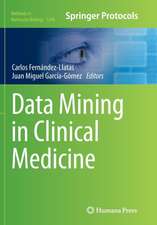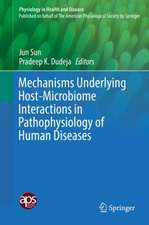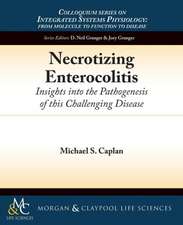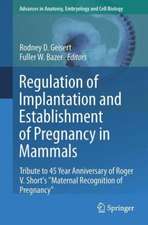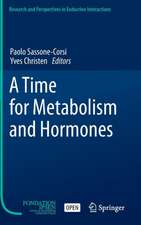The Physiology of Exercise in Spinal Cord Injury: Physiology in Health and Disease
Editat de J. Andrew Tayloren Limba Engleză Hardback – 22 dec 2016
| Toate formatele și edițiile | Preț | Express |
|---|---|---|
| Paperback (1) | 1409.53 lei 6-8 săpt. | |
| Springer Us – 28 apr 2018 | 1409.53 lei 6-8 săpt. | |
| Hardback (1) | 1416.66 lei 6-8 săpt. | |
| Springer Us – 22 dec 2016 | 1416.66 lei 6-8 săpt. |
Din seria Physiology in Health and Disease
- 18%
 Preț: 952.26 lei
Preț: 952.26 lei - 5%
 Preț: 1457.78 lei
Preț: 1457.78 lei - 5%
 Preț: 1169.42 lei
Preț: 1169.42 lei - 5%
 Preț: 1291.72 lei
Preț: 1291.72 lei - 5%
 Preț: 1296.49 lei
Preț: 1296.49 lei - 5%
 Preț: 1107.06 lei
Preț: 1107.06 lei - 5%
 Preț: 715.71 lei
Preț: 715.71 lei - 5%
 Preț: 694.37 lei
Preț: 694.37 lei - 5%
 Preț: 910.82 lei
Preț: 910.82 lei - 5%
 Preț: 1295.24 lei
Preț: 1295.24 lei - 5%
 Preț: 1106.69 lei
Preț: 1106.69 lei - 5%
 Preț: 1159.55 lei
Preț: 1159.55 lei - 5%
 Preț: 1289.90 lei
Preț: 1289.90 lei - 5%
 Preț: 1293.03 lei
Preț: 1293.03 lei - 20%
 Preț: 769.58 lei
Preț: 769.58 lei
Preț: 1416.66 lei
Preț vechi: 1491.22 lei
-5% Nou
Puncte Express: 2125
Preț estimativ în valută:
271.07€ • 283.79$ • 224.30£
271.07€ • 283.79$ • 224.30£
Carte tipărită la comandă
Livrare economică 05-19 aprilie
Preluare comenzi: 021 569.72.76
Specificații
ISBN-13: 9781493966622
ISBN-10: 1493966626
Pagini: 407
Ilustrații: VI, 286 p. 42 illus., 12 illus. in color.
Dimensiuni: 155 x 235 x 18 mm
Greutate: 0.59 kg
Ediția:1st ed. 2016
Editura: Springer Us
Colecția Springer
Seria Physiology in Health and Disease
Locul publicării:New York, NY, United States
ISBN-10: 1493966626
Pagini: 407
Ilustrații: VI, 286 p. 42 illus., 12 illus. in color.
Dimensiuni: 155 x 235 x 18 mm
Greutate: 0.59 kg
Ediția:1st ed. 2016
Editura: Springer Us
Colecția Springer
Seria Physiology in Health and Disease
Locul publicării:New York, NY, United States
Cuprins
The Physiology of Exercise in Spinal Cord Injury (SCI): An Overview of the Limitations and Adaptations.- Physiology of Motor Deficits and the Potential of Motor Recovery after a Spinal Cord Injury.- Role of Activity in Defining Metabolic and Contractile Adaptations after SCI.- Respiratory System Responses to Exercise in Spinal Cord Injury.- Alterations in Cardiac Electrophysiology after Spinal Cord Injury and Implications for Exercise.- Cardiovascular Responses to Exercise in Spinal Cord Injury .- Thermoregulatory Considerations for the Performance of Exercise in SCI.- Increased Bone Fracture after SCI: Can Exercise Reduce Risk? .- Alterations in Body Composition after SCI and the Mitigating Role of Exercise.- Cardiometabolic Syndrome in SCI: The Role of Physical Deconditioning and Evidence-based Countermeasures.- The Effect of Acute and Chronic Exercise on Inflammatory Markers in SCI.- Role of Exercise in Alleviating Chronic Pain in SCI.- Autonomic Alterations after SCI: Implicationsfor Exercise Performance.- Hybrid FES Exercise for Improved Fitness in SCI.
Recenzii
“This book offers a well-written and well-referenced comprehensive review of the physiological responses to exercise performed by people with spinal cord injury. … Rehabilitation clinicians are likely to find this book of particular interest, as will clinical researchers who are investigating this important and increasingly commonly studied topic. … a much needed and unmatched single comprehensive reference for professionals who are studying and designing clinical, community, or research programs on the topic of exercise for people with spinal cord injury.” (Elliot J. Roth, Doody’s Book Reviews, April, 2017)
Notă biografică
Dr. Taylor is an integrative physiologist with a research focus on the human cardiovascular system and the effects of aging, exercise, and pathophysiology. He has conducted clinical/translational research on cardiovascular autonomic control at Harvard Medical School for over twenty years. His work has ranged across various pathophysiologic conditions, including chronic fatigue syndrome, disorders of sleep, and traumatic brain injury. A current primary area of research is exercise for those with spinal cord injuries to prevent inactivity-related cardiovascular deficits.
Textul de pe ultima copertă
Every year, around the world, between 250,000 and 500,000 people suffer a spinal cord injury (SCI). Those with an SCI are two to five times more likely to die prematurely than people without a spinal cord injury, with worse survival rates in low- and middle-income countries. Dynamic aerobic requires integrated physiologic responses across the musculoskeletal, cardiovascular, autonomic, pulmonary, thermoregulatory, and immunologic systems. Moreover, regular aerobic exercise beneficially impacts these same systems, reducing the risk for a range of diseases and maladies. This book will present comprehensive information on the unique physiologic effects of SCI and the potential role of exercise in treating and mitigating these effects. In addition, it will incorporate work from scientists across a number of disciplines and have contributors at multiple levels of investigation and across physiologic systems. Furthermore, SCI can be considered an accelerated form of aging due to the severely restricted physical inactivity imposed, usually at an early age. Therefore, the information presented may have a broader importance to the physiology of aging as it relates to inactivity. Lastly, the need for certain levels of regular aerobic exercise to engender adaptations beneficial to health is not altered by the burden of an SCI. Indeed, the amounts of exercise necessary may be even greater than the able-bodied due to ‘passive’ ambulation. This book will also address the potential health benefits for those with an SCI that can be realized if a sufficient exercise stimulus is provided.
Caracteristici
It’s the only book surveying the physiologic systems impacted by Spinal Cord Injury in the context of exercise to date The book is written for experts in physical and rehabilitation medicine, integrative physiology of exercise, adaptive exercise and sports, as well as for those with a spinal cord injury, their caregivers, and even their physicians The contributing authors are among the most cited research scientists in the fields of spinal cord injury and exercise physiology
